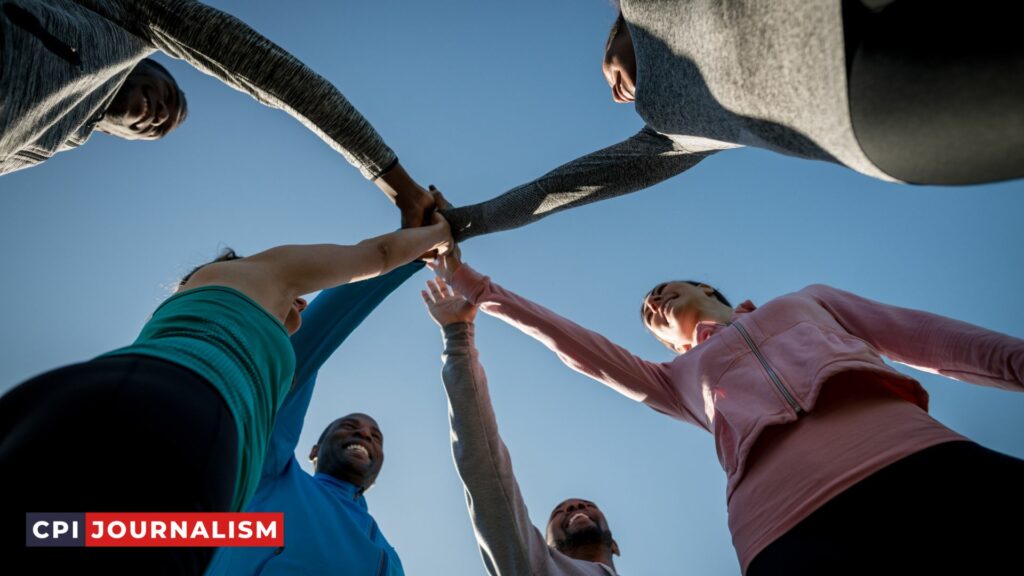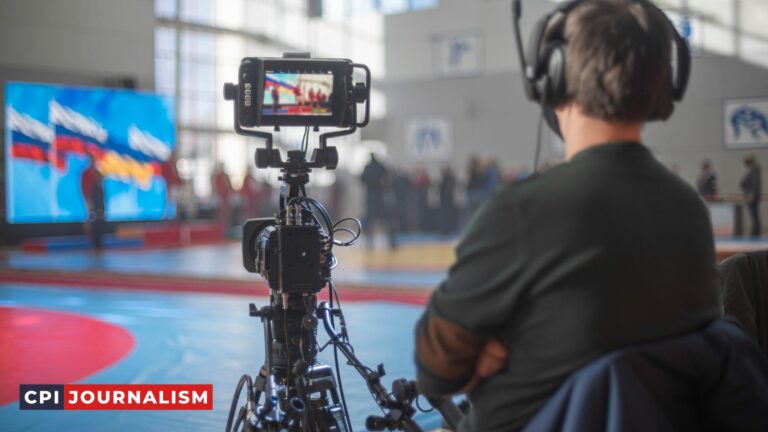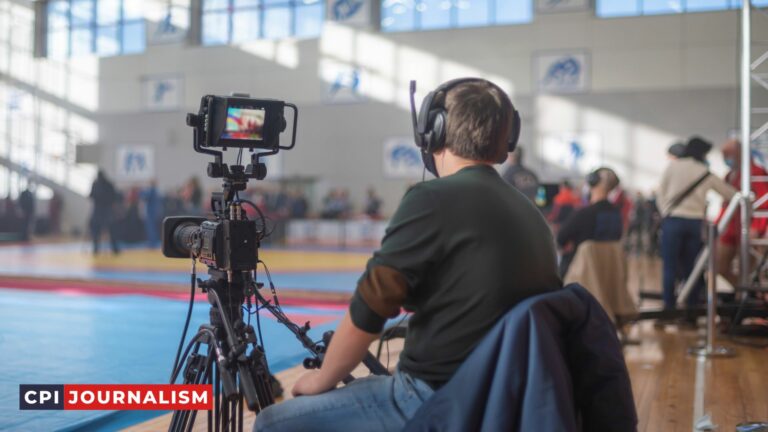What Is The Role Of Diversity In Sports Journalism
As an experienced journalist, I am often asked about the role of diversity in sports journalism. Diversity is an essential part of journalism and it is a key factor in determining the quality of reporting, analysis and commentary in the sports world.
Diversity in sports journalism is critical to providing an accurate, comprehensive and unbiased perspective on the athletes, teams and sports events that are covered.
Diversity in sports journalism also serves to broaden the range of perspectives and experiences that are represented in the media,
which can lead to more informative, engaging and entertaining coverage of sports events. In this article, I will share my experience and knowledge on the importance of diversity in sports journalism and how it can be used to improve the quality of reporting.
A. Definition of Diversity
Diversity in sports journalism is defined as the inclusion of a range of voices from different backgrounds, experiences, and perspectives in the reporting, analysis, and commentary on sports.
This includes reporters, columnists, and commentators from a variety of racial and ethnic backgrounds, gender identities, sexual orientations, ages, religions, and socio-economic backgrounds.
Diversity in sports journalism also means creating space for stories to be told about and by athletes who are not traditionally represented in mainstream sports media.
This includes athletes who identify as women, LGBTQ+, disabled, and/or of color. It also includes stories about grassroots sports and athletes who are not part of the professional or collegiate systems.
Diversity in sports journalism is also about creating a space for thoughtful, nuanced and in-depth conversations on race, gender, class, and other forms of oppression that intersect with sports.
This means going beyond the traditional “hot takes” and “sound bites” to engage with the complexities of how race, gender, and class intersect with sports.
Overall, diversity in sports journalism is about expanding the range of voices, stories, and perspectives that are represented in the reporting, analysis, and commentary on sports.
It is about creating a more inclusive and equitable space for sports journalism and challenging the status quo.
B. Definition of Sports Journalism
Sports journalism is the reporting, writing, and editing of sports news, events, and personalities. It is a form of journalism that involves covering sporting events, teams, and athletes, as well as the business and cultural aspects of sport.
Sports journalists provide accurate, timely, and thorough coverage of both amateur and professional sports.
Sports journalism is a specialized form of journalism that focuses on the coverage of sporting events, teams, and athletes. They provide coverage on a wide variety of sports, including football, baseball, basketball, golf, tennis, soccer, and hockey.
Sports journalists are also responsible for interviewing athletes, coaches, and team owners, as well as providing analysis of games, teams, and trends in the industry.
Sports journalism is an important part of the sports industry, as they provide information to fans and media outlets. Through their coverage, they help to shape public opinion on the sport, its players, and its teams.
Additionally, sports journalism can help to promote the sport and its athletes, as well as the overall industry.
In order to be successful in sports journalism, one must have a comprehensive knowledge of the sport and its history, as well as a passion for the game. Excellent writing and editing skills are also necessary, as well as the ability to work under tight deadlines.
Additionally, sports journalists must be able to understand and analyze complex data related to the sport. Finally, sports journalists must be able to work with a variety of sources, including athletes, coaches, and team owners.
C. Overview Of The Role Of Diversity In Sports Journalism
Sports journalism is an ever-evolving field of study, and the role of diversity in sports journalism is an increasingly important factor that must be considered.
Diversity in sports journalism is a multifaceted concept that encompasses a wide range of issues related to race, gender, sexual orientation, and more.
In order to provide a comprehensive overview of the role of diversity in sports journalism, it is necessary to look at the various ways in which diversity is incorporated into the field.
Diversity in sports journalism is essential for creating a level playing field for all athletes and fans, as well as for creating a more inclusive environment for all individuals involved in the sports world.
At the core of diversity in sports journalism is the need for accurate and balanced coverage of all sports events, regardless of the gender, race, or sexual orientation of the athletes involved.
This means that journalists must be aware of the biases that exist in the sports world and strive to provide unbiased coverage that is both fair and objective.
In addition, diversity in sports journalism is essential for creating a more inclusive environment for all fans and athletes. This means that journalists must strive to ensure that their coverage is inclusive of all people, regardless of their gender, race, or sexual orientation.
Furthermore, journalists should strive to ensure that their coverage is respectful of all individuals, regardless of their backgrounds.
Finally, diversity in sports journalism is essential for ensuring that all athletes have a platform to share their stories and experiences with the world.
This means that journalists must be willing to listen to and report on the experiences of all athletes, regardless of their background. By providing a platform for all athletes to share their stories, journalists can help to create an atmosphere of understanding and acceptance in the sports world.
In summary, diversity in sports journalism is a crucial factor that must be considered in order to ensure that sports journalism is both accurate and inclusive of all individuals involved in the sports world.
By creating an environment of understanding and acceptance, sports journalism can help to create a more level playing field for all athletes and fans.
II. Benefits Of Diversity In Sports Journalism
Sports journalism has always been an industry that has been dominated by male voices and perspectives.
However, the importance of diversity in this field is becoming increasingly recognized. Diversity in sports journalism can bring many benefits, both to the industry itself and to the audiences that consume it.
Firstly, diversity in sports journalism can help to ensure a more accurate and well-rounded coverage of the sporting world.

With a greater range of voices, stories and perspectives being shared, the audience can get a better understanding of the issues and events that are impacting the sports industry.
This in turn can lead to greater public engagement and discussion of sports issues, and a more informed audience.
Secondly, diversity in sports journalism can also help to ensure greater representation of different communities and backgrounds.
This can be particularly important in helping to foster a more inclusive sports environment and in providing more equitable opportunities for participation in the industry.
Finally, the benefits of diversity in sports journalism can also be seen in terms of the economic impact.
A more diverse range of voices and perspectives in the sports journalism industry can help to attract more readers and viewers, and can potentially lead to greater revenues for the industry.
In conclusion, there are many benefits to having greater diversity in sports journalism. By providing more accurate and well-rounded coverage of sports issues, by helping to foster an inclusive environment, and by potentially leading to greater economic returns, diversity in sports journalism can be a powerful force for positive change.
A. Increased Representation Of Different Perspectives
In recent years, the sports journalism industry has seen a huge push for increased representation of different perspectives.
Diversity in sports journalism ensures that the stories being told are not just from one perspective, but from many. It provides a much-needed platform for diverse voices to be heard and for stories to be told from various angles.
At the heart of this push for increased diversity is the concept of inclusion. Inclusion involves making sure that all voices are heard and that all perspectives are represented in the media.
This means that journalists should actively seek out and amplify diverse voices, and should strive to tell stories that reflect the realities of different communities.
In addition to providing a platform for diverse voices, increased representation of different perspectives can also bring a new level of depth to sports journalism.
Journalists should strive to go beyond the surface of a story and seek out the nuances that can be found in different communities. This can give sports journalism a much-needed level of depth and can help to create more meaningful and impactful stories.
Ultimately, increased representation of different perspectives in sports journalism is essential for creating a more equitable and inclusive media landscape.
By amplifying diverse voices, journalists can ensure that all stories are told from different angles and that all communities are represented. Doing so can bring greater depth and insight to the stories that are being told and can create a much-needed platform for diverse communities.
B. Improved Coverage of Minorities in Sports
As an experienced journalist, I believe that one of the most important roles of diversity in sports journalism is to ensure that minorities are adequately covered and represented.
Minorities are often overlooked in sports media coverage and as a result, their stories and perspectives can go unheard.
It is essential that sports media use their platform to give visibility to minority athletes and to provide them with an equal opportunity to be seen and heard.
This could be achieved through the hiring of diverse reporters to provide a more comprehensive representation of the sports community, as well as through the increased coverage of minority-focused events, teams, and athletes.
In addition to greater coverage of minorities in sports, it is also important for sports media to strive for increased diversity in the subjects that they cover.
This includes covering stories that go beyond just profiling a single athlete and instead focus on the communities and issues that are important to minority athletes.
Finally, sports media should also strive to feature stories that showcase the success of minority athletes and how they are breaking boundaries and challenging the status quo in the sports world.
This kind of storytelling is essential in creating an inclusive and diverse sports landscape. Through this kind of coverage, sports media can provide much needed visibility to minority athletes and help to break down stereotypes and create a more open and equitable sports world.
C. Increased Understanding Of Different Cultures
In the world of sports journalism, one of the most important roles of diversity is to help foster an understanding of different cultures.
With the rapidly evolving global landscape, it is becoming increasingly important to have a working knowledge of different cultures and the nuances that come with them.
In the world of sports, there are many different ethnicities, religions, and nationalities that are represented in various sports. As a sports journalist, it is important to be aware of these different cultures and to be able to accurately report on them.
When reporting on different cultures, it is important to be sensitive to the language used and the topics covered. It is also important to be respectful of the beliefs and values of the different cultures and to be mindful of potential cultural biases.
By embracing diversity in sports journalism, journalists can gain a better understanding of different cultures and the nuances that come with them. Understanding different cultures can help journalists to better craft stories that are more accurate, informative, and respectful.
With increased understanding of different cultures, sports journalism can become a more inclusive and representative field.
D. Increased Opportunities For Minorities In Sports Journalism
In the past, the sports journalism industry was dominated by white men. However, today, the landscape is changing in a positive direction.
This change is due to an increased awareness of the need for diversity in the field and the efforts of organizations such as the National Association of Black Journalists (NABJ) and the National Association of Hispanic Journalists (NAHJ).
These organizations have been instrumental in pushing for increased opportunities for minorities in sports journalism. They have created scholarships, internships, and mentoring programs to encourage more diverse voices to enter the field.
They have also worked to create more diverse hiring practices and highlight journalists of color in the media.
At the same time, it is important to recognize that there is still a long way to go. Despite the progress that has been made, the sports journalism industry is still largely unrepresentative of the population at large.
This includes an overrepresentation of white men and an underrepresentation of women and people of color.
It is important to continue to push for increased opportunities for minorities in sports journalism. This can include creating more scholarships and internships, as well as advocating for more diverse hiring practices.
Additionally, it is also important to recognize and promote the work of journalists of color. By doing this, we can ensure that sports journalism is truly representative of the population at large.
III. Challenges of Diversity in Sports Journalism
The role of diversity in sports journalism is a crucial one, as it has the potential to shape the way sports are discussed and understood in our society. However, there are some challenges that can arise when attempting to promote diversity in sports journalism.
First, there is a lack of representation of diverse voices in many sports media outlets. This can be attributed to a number of factors, including the lack of recruitment of journalists from diverse backgrounds, the lack of promotion of these journalists to more senior positions, and the gender and racial biases that can exist in sports media.
As such, it can be hard for journalists from diverse backgrounds to find a platform to share their perspectives.
Second, there is a lack of cultural competency in the way that sports journalism is practiced. It is essential for journalists to be culturally aware and sensitive when covering stories that involve athletes from different backgrounds and cultures.
Unfortunately, there are still many instances of sports journalism that fails to consider the complexities of the issues that are being discussed.
Finally, there is a lack of resources available to journalists from diverse backgrounds. Far too often, these journalists are not given the same access to resources and opportunities as their white counterparts, which can limit their ability to produce quality work.
Additionally, there is a need for more organizations that can provide support and mentorship to journalists from diverse backgrounds, so that they can become successful in the field.
In order to ensure that sports journalism is truly reflective of the diversity of the sports world, it is essential that these challenges are addressed and overcome.
Only then will sports journalism be able to fully embrace and celebrate the diversity of the sports world.
A. Lack Of Representation Of Minorities In Sports Journalism
Sports journalism is a field that is largely dominated by white people. As such, the representation of minorities in the field is low, and this lack of representation has serious implications for the quality of sports journalism.
The lack of diversity in sports journalism is not a new issue; it has been a problem for decades. In a 2016 study, it was found that only 4% of sports editors and 6% of sports reporters were African American.
This means that the majority of stories, perspectives, and voices that are heard in the sports journalism industry are from white people.
This lack of representation of minorities in sports journalism means that stories that focus on the experiences of people of color are often not told.
As a result, the public only gets one side of the story, and this creates a skewed narrative which is often damaging to people of color.
Additionally, the lack of diversity in sports journalism also has an impact on how stories are reported.
For example, stories that focus on the successes of people of color are often ignored, while negative stories about people of color get more attention. This creates an imbalanced narrative that can be damaging to people of color.
The lack of representation of minorities in sports journalism is a problem that needs to be addressed.
To create a balanced and diverse sports journalism landscape, it is essential that more people of color are given the opportunity to tell their stories and share their perspectives.
This will create a more accurate and diverse narrative and lead to a more equitable and diverse sports journalism industry.
B. Lack Of Understanding Of Different Cultures
Sports journalism has the potential to be a powerful tool for promoting understanding and respect for different cultures.
However, due to a lack of understanding of different cultures and their nuances, sports journalism can sometimes exacerbate existing tensions and misunderstandings.
In order to prevent this from happening, it is essential for sports journalists to gain an understanding of the cultures and communities they are writing about. This includes learning about their language, customs, values and beliefs.
It is also important to be aware of the fact that different cultures may have different interpretations of the same event.
For example, a football game may be viewed as a source of entertainment in one culture and as a serious competitive event in another.
In addition, sports journalists should strive to be sensitive and respectful of different cultures and their values. This includes being aware of the fact that certain topics may be sensitive or taboo and avoiding perpetuating stereotypes and biases.
Finally, it is important for sports journalists to be open to learning and understanding the perspectives of different cultures and communities.
This can be done by engaging in conversations with people from different backgrounds, reading literature from different cultures, and seeking out the stories of people from different cultures.
By doing this, sports journalists can ensure that their work is inclusive and respectful of different cultures, and ultimately help promote mutual understanding and respect.
C. Unconscious Bias In Sports Journalism
Unconscious bias in sports journalism is a major factor that affects diversity in the field. Unconscious bias is a form of implicit bias that operates on an unconscious level and can lead to discriminatory behavior.
Unconscious bias can lead to decisions being made based on preconceived notions and stereotypes, rather than on the actual merits of the individual or situation.
In the context of sports journalism, unconscious bias can lead to a lack of diversity in coverage, as journalists may be more likely to cover stories or athletes that fit into their own preconceived ideas of what a successful athlete looks like.
This can lead to a lack of coverage of athletes who may be minorities or from different backgrounds, or even a lack of coverage of sports that are not traditionally seen as mainstream.
Unconscious bias can also lead to a lack of diversity in hiring practices, as journalists may be more likely to hire people that fit into their own preconceived ideas of what a successful journalist looks like.
This can lead to a lack of diversity of perspectives and stories being shared, as journalists may be more likely to hire people who share similar backgrounds and experiences.
It is important that journalists are aware of the potential for unconscious bias in sports journalism, and take steps to ensure that decisions are based on the actual merits of the individual or situation, rather than on preconceived notions or stereotypes.
This can help to ensure that sports journalism is more diverse and inclusive, and that the stories being shared are reflective of the diversity of the athletes and sports involved.
D. Lack Of Access To Resources For Minorities In Sports Journalism
The lack of diversity in the field of sports journalism is inextricably linked to the lack of access to resources for minorities in the field.
Despite the many advances made in recent years, minorities continue to be underrepresented in the field, and access to resources is a key factor in this.
First, there is a lack of access to financial resources for minorities in sports journalism. Minorities often lack the financial resources needed to pursue a career in sports journalism, meaning that they are unable to gain the necessary experience and education to be successful.
This lack of resources means that minorities have a harder time breaking into the field and advancing their careers.
Second, there is a lack of access to networking and mentorship opportunities for minorities in sports journalism. Minority journalists often lack the relationships and mentorships that are so important in the field and are necessary for career growth.
Without these resources, minorities have a harder time getting the jobs they seek, and are more likely to be overlooked for opportunities.
Finally, there is a lack of access to diverse sources of information for minorities in sports journalism. Minority journalists often lack access to the same sources of information that their peers have access to, meaning that their stories and perspectives are often underrepresented in the field.
This lack of diversity of perspectives can lead to a narrow, homogenous view of the sports world, and this lack of access to resources can lead to missed opportunities and a lack of representation in the field.
Overall, the lack of access to resources for minorities in sports journalism is a major issue that needs to be addressed. Without access to the same resources as their peers, minorities are at a disadvantage in the field and are more likely to be overlooked for opportunities and have their voices go unheard.
It is vital that the industry make strides to ensure that minorities have access to the same resources as their peers, so that they can be successful in the field and help foster a greater sense of diversity in the field of sports journalism.
IV. Strategies for Increasing Diversity in Sports Journalism
Sports journalism has traditionally been a male-dominated industry, which makes it all the more important to increase diversity in sports journalism. To do this, there are several strategies that can be employed to increase diversity in sports journalism.
First, it is important to create an inclusive environment. This means that sports journalists should strive to create a culture where those from different backgrounds and perspectives feel welcome and comfortable.
This could include providing training on diversity and inclusion, creating an environment that is respectful of different cultures, and actively engaging with different communities.

Second, it is important to recruit, hire, and retain more diverse staff. This could include creating targeted outreach campaigns to reach out to potential candidates from underrepresented communities, offering scholarships and internships to those who are interested in pursuing a career in sports journalism, and providing mentorship and career development opportunities to those who are already working in the field.
Third, it is important to create content that is reflective of the diversity of the world. This means that sports journalists should strive to create content that includes multiple perspectives and focuses on a wide range of topics.
This could include covering stories that are often ignored by mainstream sports media, such as the stories of female athletes, stories of athletes of color, and stories of athletes from different backgrounds.
Finally, it is important to create a community that celebrates diversity. This could include holding events that bring together people from different backgrounds, creating spaces for people from different backgrounds to connect and discuss their experiences, and supporting initiatives that promote diversity in sports journalism.
By employing these strategies, sports journalists can help to create an industry that is more reflective of the world we live in, and that is welcoming and supportive to all.
A. Recruiting Diverse Journalists
As an experienced journalist, I strongly believe that recruiting diverse journalists is an essential step in promoting diversity in sports journalism.
Having diverse perspectives and approaches to reporting, storytelling, and analysis can add a lot of value to the sports media landscape.
First and foremost, organizations need to ensure that their recruitment processes are accessible and inclusive.
Advertising open positions on platforms that are frequented by a wide range of potential candidates, such as social media, is a great way to make sure that everyone has the opportunity to apply.
Additionally, it is important to make sure that there are no artificial barriers to entry that might prevent a particular group from being represented.
For example, if a particular position requires a certain level of experience, organizations should consider creating internships or other entry-level positions that allow more people to gain the necessary skills to apply.
Finally, it is important to make sure that a wide range of voices are heard throughout the recruitment process.
Having a diverse panel of interviewers can help to ensure that everyone’s perspectives are taken into account and that all candidates are assessed fairly.
By taking these steps, organizations can ensure that they are recruiting diverse journalists, which can help promote diversity in sports journalism.
It is also important to remember that diversity in sports journalism is not just about race, gender, and other visible identities; it is also about making sure that all voices are heard and represented in the media.
B. Training Journalists on Cultural Sensitivity
As sports journalism increasingly covers a more diverse range of athletes, it is important for journalists to understand the importance of cultural sensitivity when writing about athletes from different backgrounds.
Cultural sensitivity is essential for creating stories that accurately represent the athlete’s background and experiences.
When it comes to training journalists on cultural sensitivity, it is essential to emphasize the importance of understanding the culture and norms of the athlete’s background.
Journalists should be encouraged to research and become familiar with the athlete’s cultural background, as this will help them to create stories that accurately reflect the athlete’s experiences.
In addition, journalists should also be trained to be aware of their own biases when writing about athletes from different backgrounds.
Journalists should be aware of the potential for their own cultural biases to affect their reporting and be mindful of how their reporting can be seen as insensitive or inaccurate.
Finally, journalists should be trained to be aware of the potential for cultural appropriation. When reporting on athletes from different backgrounds, it is important for journalists to be aware of the potential for their reporting to be seen as potentially disrespectful or exploitative.
Journalists should be trained to be mindful of the potential for their reporting to be seen as culturally insensitive or appropriative.
In conclusion, training journalists on cultural sensitivity is essential for creating stories that accurately represent athletes from different backgrounds.
Journalists should be trained to be aware of their own biases, to become familiar with the culture and norms of the athlete’s background, and to be mindful of the potential for their reporting to be seen as culturally insensitive or appropriative.
C. Promoting Inclusion In Sports Journalism
The field of sports journalism is one that has traditionally been dominated by white, male voices. This lack of diversity in the industry has led to a lack of representation of different perspectives in the stories that are told.
It is essential that steps are taken to promote inclusion in sports journalism in order to ensure that all voices are heard and respected.
One way to promote inclusion in sports journalism is to increase the number of diverse voices in the industry. This can be achieved by actively recruiting diverse journalists, providing them with the skills and support they need to succeed, and creating an environment that is welcoming and inclusive.
Additionally, newsrooms should strive to create a diverse and inclusive culture by fostering an environment of respect and understanding.
It is also essential that sports journalists strive to bring attention to stories that may otherwise not be told.
This can be done by seeking out stories from diverse perspectives, and highlighting the issues that are important to underrepresented communities. This can help to ensure that all voices are heard and respected.
Finally, it is important for sports journalists to recognize their own power and influence, and use it to promote inclusion in their work.
This can be done by taking steps to ensure that all voices are heard and respected in stories, and to make sure that diverse voices have a platform to tell their stories.
By taking steps to promote inclusion in sports journalism, newsrooms can create an environment where all voices are heard and respected. This is essential if the industry is to truly reflect the diversity of the world we live in.
D. Providing Resources For Minorities In Sports Journalism
As an experienced sports journalist, I believe that it is vital to provide resources and support to minorities in the field of sports journalism. This is especially true in an industry that has traditionally been dominated by white males.
While there have been some strides made in recent years to increase diversity in sports journalism, there is still much work that needs to be done to ensure that minorities are given equal access to resources and opportunities.
One of the best ways to support minorities in sports journalism is to provide them with access to mentorship. Mentorship can provide minorities with the knowledge and experience they need to succeed in the field of sports journalism.
Mentors can also provide guidance and advice on how to navigate the often-challenging world of sports journalism.
Additionally, mentors can help to open doors to new opportunities by introducing minorities to influential people in the field.
Another important way to support minorities in sports journalism is to provide them with access to networks and resources.
This includes providing access to industry organizations, such as the National Association of Black Journalists (NABJ) or the National Association of Hispanic Journalists (NAHJ).
These organizations can provide support and resources to minorities in the field. Additionally, providing access to scholarships, fellowships, and other financial aid can help to ensure that minorities are able to pursue their dreams of becoming sports journalists.
Finally, another way to support minorities in sports journalism is to ensure that they are represented in the media.
This can be done by providing platforms for minorities to share their stories and perspectives, and by providing access to positions of power within the media.
By doing this, we can help to create an environment in which minorities can be heard and seen, and their voices can be respected and acknowledged.
Ultimately, it is essential to provide resources and support to minorities in sports journalism. By doing so, we can help to create a more diverse and inclusive field, and ensure that everyone has the opportunity to pursue their dreams of becoming a sports journalist.
V. Conclusion
In conclusion, sports journalism plays an essential role in highlighting diversity in sports, particularly in terms of gender, race, ethnicity, and other forms of identity.
It is essential that sports journalists strive to represent all voices in the sporting community, in order to create an inclusive and representative environment for all.
Through thoughtful reporting and thoughtful conversations, sports journalists can help create a better understanding of the world of sports, as well as its respective athletes, teams, and leagues.
Furthermore, sports journalism has the potential to drive positive change in the sporting community.
By providing a platform for diverse voices and perspectives, sports journalism can help to create a more equitable and inclusive environment in the sporting world, while also promoting understanding and respect between all members of the sporting community.
Ultimately, sports journalism plays an important role in advocating for diversity in the sporting world, and it’s up to all of us to ensure that it continues to do so.
Through thoughtful reporting, open dialogue, and inclusivity, sports journalists can help create a more equitable and respectful environment in the world of sports.
A. Summary of the Role of Diversity in Sports Journalism
Sports journalism is a unique and dynamic field that requires a variety of voices to tell the stories of athletes, teams, and the sports culture.
Diversity in sports journalism should be encouraged and fostered to ensure that all perspectives are represented in the media.
This includes elevating the voices of people of color, women, LGBTQIA+ people, and other marginalized groups.
Diversity in sports journalism allows for a more accurate and nuanced representation of the sports world, and allows journalists to tell stories from a variety of perspectives.
Diversity in sports journalism also allows for more accurate and balanced coverage. Journalists from diverse backgrounds are better equipped to approach stories from a broad range of angles, allowing for more in-depth coverage of the issues, trends, and topics in the sports world.
Diversity in sports journalism also allows for athletes and teams to be represented in a more accurate and authentic manner.
Diversity in sports journalism is also important for building trust and credibility with readers and viewers. People are more likely to trust and engage with media sources that reflect their own backgrounds and perspectives, making it essential that sports journalism includes diversity.
In conclusion, diversity in sports journalism is essential in order to ensure accurate and authentic representation.
It allows for broader perspectives and coverage, and builds trust and credibility with readers and viewers. Journalists should strive to create a diverse and inclusive environment to ensure that all voices are heard and respected.
B. Impact of Diversity in Sports Journalism
Diversity in sports journalism is an important factor that has a great impact on the industry. Diversity in sports journalism can provide a platform for different voices and perspectives to be heard, allowing for more accurate and well-rounded reporting.
In addition, diversifying the field of sports journalism can also help to reduce the biases and prejudices that can often be found in the industry.
A diverse sports journalism field can lead to more accurate and comprehensive reporting. By diversifying the field, journalists can be more aware of the different experiences and perspectives of those they are reporting on and can create stories that reflect the entirety of the situation.
This can help to create a more balanced and objective perspective on the stories being reported.
In addition, diversity in sports journalism can help to reduce bias and prejudice in the industry. By diversifying the field, it can help to eliminate the privilege that can come with certain backgrounds and identities.
This can help to create a more equitable and fair playing field for all journalists, regardless of their background or identity.
Finally, diversity in sports journalism can help to create a more inclusive environment for both journalists and readers. By having journalists from different backgrounds and identities, it can create a more welcoming and accessible atmosphere for readers.
This can help to create a more open dialogue about the stories being reported and can help to create a more well-rounded reporting.
Overall, diversity in sports journalism is an important factor that can have a positive impact on the industry. By diversifying the field, it can help to create more accurate and comprehensive reporting, reduce bias and prejudice, and create a more inclusive environment.
C. Call To Action For Sports Journalists
As sports journalists, we have an important role in driving diversity in the sports media industry. We must actively challenge the status quo and strive to create a more inclusive environment.
Here are a few specific actions that sports journalists can take to help promote diversity in the sports media industry:
1. Make diversity a priority in hiring and reporting: Sports media outlets should ensure that their staff reflects the diversity of their readership, and there should be an effort to diversify their reporting.
This means seeking out perspectives from a variety of backgrounds, including people of color, women, LGBTQ+ individuals, and people with disabilities.
2. Hold sports organizations accountable: Sports organizations should be held accountable for their lack of diversity, both on and off the field. Sports journalists should use their platform to call out discriminatory practices, and to question why certain voices are not represented in sports media.
3. Encourage young journalists: Mentorship is key in helping young journalists from diverse backgrounds break into the industry.
Sports journalists should make an effort to reach out to young people who may not have the resources or support network to pursue a career in sports media.
By taking these steps, sports journalists will help create a more diverse and inclusive sports media industry.
This will benefit both the industry and its readership, as it will create a more accurate and dynamic representation of the sports world.







